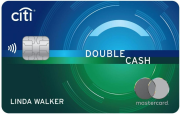The content on this page is accurate as of the posting date; however, some of the offers mentioned may have expired.

Have you ever been penalized for defaulting on your credit card payment? If so, you must be shuddering at the mere sound of such words as exorbitant penalty interest rates, universal default and the ever-growing credit card fees.
However, these are not the only source of revenues for credit card companies and member banks and, with the provision of credit industry deregulation, lenders have a legal right to increase the rates on your plastic any time and for any reason. Until recently, customers had to submit to the change of rates or simply close their credit card account.
The Federal Reserve, realizing the increasing number of bitter complaints from credit card holders on the matter of their creditors' predatory policies suggests a new regulation for its Truth-in-Lending Act. This is planned to prohibit lenders from increasing interest rates unless they issue a 45-days notice letter giving the customer time to collect their thoughts and brace themselves.
This 45-days period is offered to customers to implement their opt-out actions which the Federal Reserve is considering to legalize. So, what is a credit cardholder authorized to undertake in case of the rates increase?
First, a customer can pay off his outstanding balance at the primary credit card rate, second - he or she can move the balance onto another, lower interest credit card.
Unfortunately, not every cardholder will be allowed to take advantage of the opting-out privilege. There are some instances, unrelated directly to the credit card account, that make the new ruling invalid.
Thus, if you have a poor credit history and low credit score, if you default on your credit card, you won't be protected from a rate hike which, in these instances, is referred to a penalty rate and can be as high as 30 % or even more.
So, when can a customer count on being eligible for the opt-out?
- If the rate increase is not the result of payment defaults on this very credit card, you may be allowed to pay off this balance at the initial interest rate. So, the opt-out applies.
- If the hike is not bound to the expiration of the grace period that is characterized by low initial APRs, then the opt-out is also available to you.
- If you find a credit card company willing to roll over the balance.
Well, if these instances are not your case, you are supposed to have all the legal rights to claim the opt-out provision that allows you to pay off the outstanding balance at the old interest or make a credit card balance transfer within a definite period of time.
Some customers may feel unfairly treated when denied the opt-out and there is a core of good sense in this strategy for companies. Imagine that all cardholders in all cases were allowed the opt-out, then there wouldn't be those initially low rate credit offers with strikingly higher APR after the grace periods. Such credit cards are one of the major sources for credit companies to make revenues and keep customers in everlasting debt. That's why the opt-out does not apply to such rates.
The credit card rates issue has become an area of sharp complaints among customers and heated discussions among financial experts. The Federal Reserve seems to be determined to resolve the matter. Let's see if it will come out in something more of advantage to US credit cardholders.





